Vitamin B
How to submit an article:
- Registered users can submit any published journal article that has a unique DOI (Digital Object Identifier) name or link to Research Hub.
- For example, you can paste the full DOI link:
https://doi.org/10.1109/5.771073or just the DOI name:10.1109/5.771073into the field above and click submit. - The person who is first to submit a valid article to Research Hub will forever be credited for it, and every article submission earns you +6 Research Points.
Related Topics
Published research studies are articles that present the findings of original research that has undergone a peer-review process and has been made publicly available in scholarly journals, books or other media.
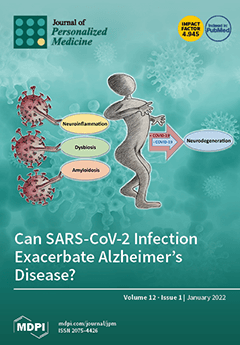
The Association of Four Natural Molecules—EGCG, Folic Acid, Vitamin B12, and HA—To Counteract HPV Cervical Lesions: A Case Report
2023 Mar 22 Journal of Personalized Medicine Grandi G, Botticelli L, Fraia PD, Babalini C, Masini M, Unfer V
Case Report Cervical Lesions Hyaluronic Acid Vitamin B12 Cervical Cancer HA Folic Acid Cervical Dysplasia Green Tea EGCG HPVThe combination of epigallocatechin gallate, vitamin B12, folic acid, and hyaluronic acid could effectively counter precancerous lesions of the uterine cervix caused by HPV infections.
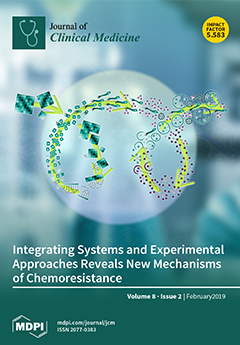
Evaluating the Efficacy of Pervistop®, a New Combination Based on EGCG, Folic Acid, Vitamin B12 and Hyaluronic Acid on Patients with Human Papilloma Virus (HPV) Persistent Infections and Cervical Lesions: A Pilot Study
2023 Mar 10 Journal of Clinical Medicine Aragona C, Bezerra Espinola MS, Bilotta G, Porcaro G, Calcagno M
Randomised Controlled Trial Cervical Dysplasia Vitamin B12 Green Tea HPV Hyaluronic Acid Folic Acid EGCGA combination of epigallocatechin gallate, folic acid, vitamin B12, and hyaluronic acid may effectively clear HPV infections and cervical lesions in women.
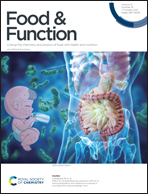
Medicine–food herb: Angelica sinensis, a potential therapeutic hope for Alzheimer's disease and related complications
2022 Jan Food & Function Long Y, Li D, Yu S, Shi A, Deng J, Wen J, et al.
The role of dietary supplement components in AS for AD intervention is summarized, including vitamin B12, folic acid, arginine, and oleic acid, which can improve the symptoms of AD. Besides, this review focuses on the safety and toxicity evaluation of AS, which provides a basis for its application. This review will provide further support for the research on AD and the application of medicine–food herb AS in a healthy lifestyle in the future.
Review Article Alzheimer's Disease Dang Gui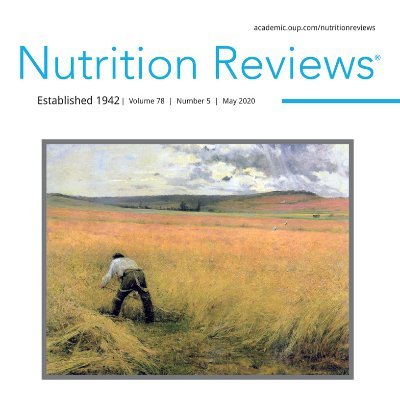
B vitamins and prevention of cognitive decline and incident dementia: a systematic review and meta-analysis
2021 Aug 25 Nutrition Reviews Wang Z, Zhu W, Xing Y, Jia J, Tang Y
This meta-analysis suggests that B vitamin supplementation is associated with slowing of cognitive decline, especially in populations who received early intervention and intervention of long duration; the study also indicates that higher intake of dietary folate, but not B12 or B6, is associated with a reduced risk of incident dementia in non-dementia aged population.
Systematic Review Meta-Analysis Vitamin B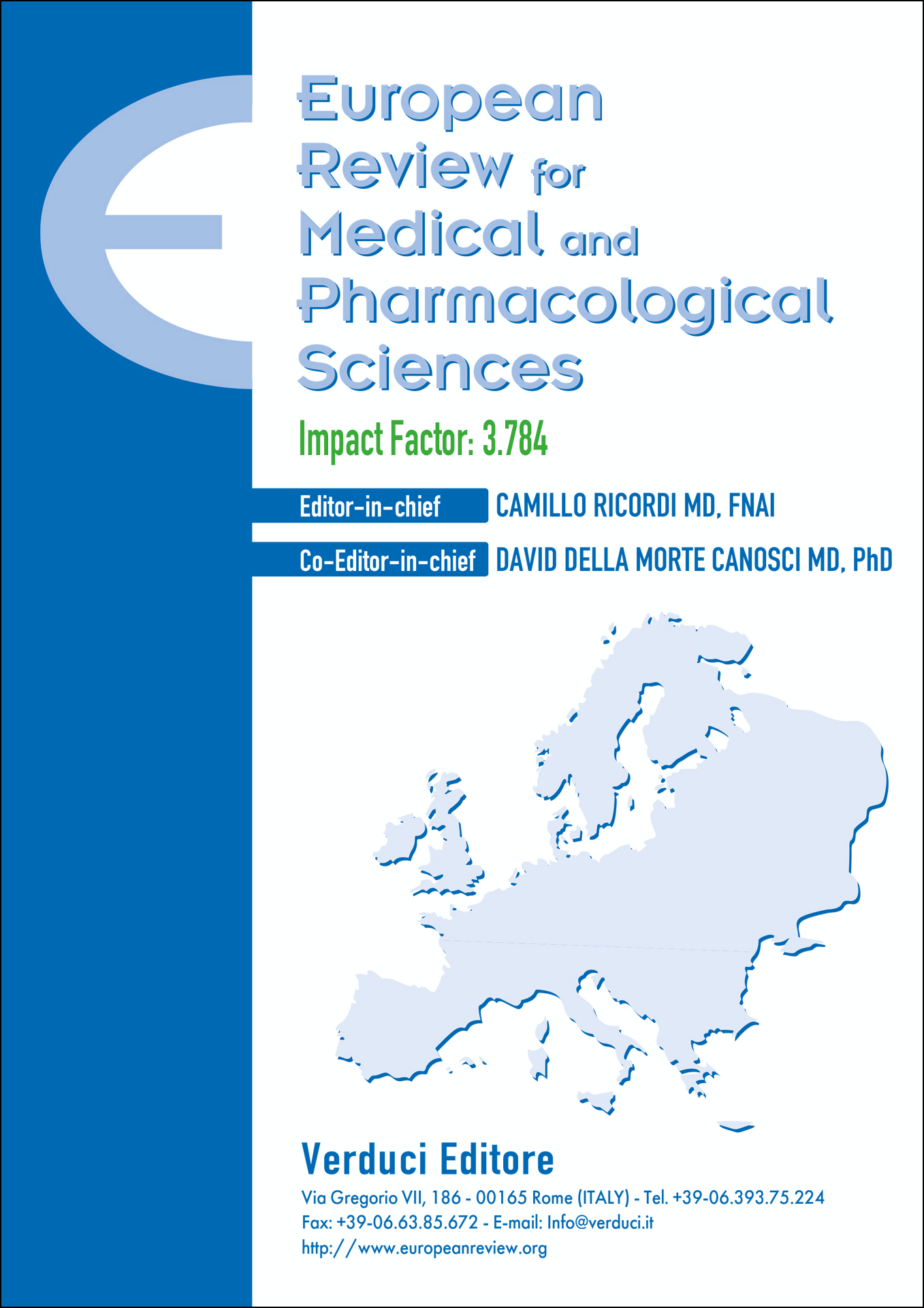
Uterine fibroids treatment: do we have new valid alternative? Experiencing the combination of vitamin D plus epigallocatechin gallate in childbearing age affected women
2021 Jan European Review for Medical and Pharmacological Sciences D. Miriello, F. Galanti, P. Cignini, D. Antonaci, M.C. Schiavi, R. Rago
We demonstrated, in young women who want to preserve fertility, that the combined supplementation of vitamin D, EGCG, and vitamin B6 reduced myomas’ volume and improved patients’ quality of life, without side effects.
Clinical Study Vitamin B6 Vitamin D EGCGResearch insights are moderated by the Research Hub team and offer an at-a-glance overview of interesting research findings.

2023 Journal of Personalized Medicine
The combination of epigallocatechin gallate, vitamin B12, folic acid, and hyaluronic acid could effectively counter precancerous lesions of the uterine cervix caused by HPV infections.
Case Report Cervical Cancer Cervical Dysplasia Cervical Lesions EGCG Folic Acid
The Association of Four Natural Molecules—EGCG, Folic Acid, Vitamin B12, and HA—To Counteract HPV Cervical Lesions: A Case Report
Grandi G, Botticelli L, Fraia PD, Babalini C, Masini M, Unfer V

2023 Journal of Clinical Medicine
A combination of epigallocatechin gallate, folic acid, vitamin B12, and hyaluronic acid may effectively clear HPV infections and cervical lesions in women.
Randomised Controlled Trial Cervical Dysplasia EGCG Folic Acid Green Tea HPV
Evaluating the Efficacy of Pervistop®, a New Combination Based on EGCG, Folic Acid, Vitamin B12 and Hyaluronic Acid on Patients with Human Papilloma Virus (HPV) Persistent Infections and Cervical Lesions: A Pilot Study
Aragona C, Bezerra Espinola MS, Bilotta G, Porcaro G, Calcagno M

2019 Applied Ecology and Environmental Research
Chrysanthemum, a plant primarily grown in China and Japan, offers significant health benefits including stress reduction, cardiovascular improvement, and lowering osteoporosis risk.
Theoretical Article Cardiovascular Disease Chrysanthemum Osteoporosis Stress
A REVIEW OF CHRYSANTHEMUM, THE EASTERN QUEEN IN TRADITIONAL CHINESE MEDICINE WITH HEALING POWER IN MODERN PHARMACEUTICAL SCIENCES
SHAHRAJABIAN MH
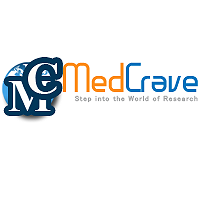
2018 MOJ Food Processing & Technology
Chili pepper has preventive and therapeutic properties for many ailments such as different types of cancer, rheumatism, stiff joints, bronchitis and chest colds with cough and headache, arthritis, heart arrhythmias and used as stomachic.
Systematic Review
Medicinal uses and health benefits of chili pepper (Capsicum spp.) : a review
Saleh BK, Omer A, Teweldemedhin B.
Review Articles
Review articles summarise and critically evaluate the current state of research on a specific topic or field by synthesising multiple primary research studies.

Medicine–food herb: Angelica sinensis, a potential therapeutic hope for Alzheimer's disease and related complications
2022 Jan Food & Function Long Y, Li D, Yu S, Shi A, Deng J, Wen J, et al.
The role of dietary supplement components in AS for AD intervention is summarized, including vitamin B12, folic acid, arginine, and oleic acid, which can improve the symptoms of AD. Besides, this review focuses on the safety and toxicity evaluation of AS, which provides a basis for its application. This review will provide further support for the research on AD and the application of medicine–food herb AS in a healthy lifestyle in the future.
Review Article Alzheimer's Disease Dang Gui
B vitamins and prevention of cognitive decline and incident dementia: a systematic review and meta-analysis
2021 Aug 25 Nutrition Reviews Wang Z, Zhu W, Xing Y, Jia J, Tang Y
This meta-analysis suggests that B vitamin supplementation is associated with slowing of cognitive decline, especially in populations who received early intervention and intervention of long duration; the study also indicates that higher intake of dietary folate, but not B12 or B6, is associated with a reduced risk of incident dementia in non-dementia aged population.
Systematic Review Meta-Analysis Vitamin B
A REVIEW OF CHRYSANTHEMUM, THE EASTERN QUEEN IN TRADITIONAL CHINESE MEDICINE WITH HEALING POWER IN MODERN PHARMACEUTICAL SCIENCES
2019 Jan Applied Ecology and Environmental Research SHAHRAJABIAN MH
Theoretical Article Review Article Cardiovascular Disease Stress Osteoporosis ChrysanthemumChrysanthemum, a plant primarily grown in China and Japan, offers significant health benefits including stress reduction, cardiovascular improvement, and lowering osteoporosis risk.

Medicinal uses and health benefits of chili pepper (Capsicum spp.) : a review
2018 Jul 5 MOJ Food Processing & Technology Saleh BK, Omer A, Teweldemedhin B.
Systematic ReviewChili pepper has preventive and therapeutic properties for many ailments such as different types of cancer, rheumatism, stiff joints, bronchitis and chest colds with cough and headache, arthritis, heart arrhythmias and used as stomachic.

Manual Acupuncture for Treatment of Diabetic Peripheral Neuropathy: A Systematic Review of Randomized Controlled Trials
2013 Sep 12 PLOS One Chen W, Yang G, Liu B, Manheimer E, Liu JP
The results suggested that manual acupuncture had a better effect on global symptom improvement than mecobalamin, vitamin B1 and B12, and no treatment for diabetic peripheral neuropathy. The combination of manual acupuncture and mecobalamin had a better effect than mecobalamin alone on global symptom improvement. No adverse events were reported in any trials. Cautious interpretation of results is needed due to the high risks of bias and publication bias.
Systematic Review Type 2 DiabetesClinical Trials
Clinical trials are research studies that involve people and are conducted to evaluate the safety and efficacy of new treatments or interventions, such as drugs, medical devices, or behavioural therapies.
Study Protocols
Published study protocols are detailed plans that outline the objectives, methodology, statistical analyses, and organisation of a research study that have been made publicly available for others to review and use as a reference.
Presentation Slides

Case Report
The combination of epigallocatechin gallate, vitamin B12, folic acid, and hyaluronic acid could effectively counter precancerous lesions of the uterine cervix caused by HPV infections.
Grandi G, Botticelli L, Fraia PD, Babalini C, Masini M, Unfer V

Randomised Controlled Trial
A combination of epigallocatechin gallate, folic acid, vitamin B12, and hyaluronic acid may effectively clear HPV infections and cervical lesions in women.
Aragona C, Bezerra Espinola MS, Bilotta G, Porcaro G, Calcagno M

Theoretical Article
Chrysanthemum, a plant primarily grown in China and Japan, offers significant health benefits including stress reduction, cardiovascular improvement, and lowering osteoporosis risk.
SHAHRAJABIAN MH

Systematic Review
Chili pepper has preventive and therapeutic properties for many ailments such as different types of cancer, rheumatism, stiff joints, bronchitis and chest colds with cough and headache, arthritis, heart arrhythmias and used as stomachic.
Saleh BK, Omer A, Teweldemedhin B.
Executive Summary
Write an executive summary in the form of a blog article on the topic of "Research into Chinese medicine treatment for Vitamin B" summarising the research below and using language that can be easily understood by patients and avoiding medical jargon using a professional and caring tone of voice.
Write an executive summary in the form of a blog article on the topic of "Researched Chinese medicine treatments for Vitamin B" summarising the research below in an objective and easy to understand way, and using language that can be easily understood by patients. Group the article into Chinese medicine treatments first, followed by nutrition and other treatments. Avoid using medical jargon and use a professional and caring tone of voice.
Write me a concise but easy to understand executive summary on the topic of "Chinese medicine treatments for Vitamin B" based on the following research that I will give you. Your summary should be 2 paragraphs long in Australian English spelling and include references to the studies.
A Case Report published in 2023 in the journal Journal of Personalized Medicine found that The combination of epigallocatechin gallate, vitamin B12, folic acid, and hyaluronic acid could effectively counter precancerous lesions of the uterine cervix caused by HPV infections. The methodology used in this research centred around treating a 39-year-old patient who had a history of HPV, cervix lesions, and multiple failed surgical attempts to treat the condition. The treatment plan applied was unique, utilizing a blend of epigallocatechin gallate, vitamin B12, folic acid, and hyaluronic acid, administered over an eight week period. The results showed promising effects, with the patient's histological and cytological analyses revealing only a chronic cervicitis instead of any malignant lesions or cellular dysplasia. Therefore, the necessity for invasive total hysterectomy was minimized, demonstrating the potential for the selected treatment plan to manage precancerous lesions of the uterine cervix.
A Randomised Controlled Trial published in 2023 in the journal Journal of Clinical Medicine found that A combination of epigallocatechin gallate, folic acid, vitamin B12, and hyaluronic acid may effectively clear HPV infections and cervical lesions in women. Forty women with persistent HPV infections and cervical lesions were enrolled in this study and were then divided into two groups. Women in the treatment group were given a 12-week treatment comprising of 200mg epigallocatechin gallate, 400µg folic acid, 1mg vitamin B12, and 50mg hyaluronic acid. In contrast, the control group received no treatment. A significant difference was noted between the two groups post-treatment. In the control group, the majority of women still had a Low-Grade Squamous Intraepithelial Lesion (LSIL) at the close of the study, with varying changes in viral DNA content. However, in the case of the treated group, most women had achieved full viral clearance, showing no signs of lesions post-treatment, thus highlighting the potential effectiveness of the treatment combination.
A Theoretical Article published in 2019 in the journal Applied Ecology and Environmental Research found that Chrysanthemum, a plant primarily grown in China and Japan, offers significant health benefits including stress reduction, cardiovascular improvement, and lowering osteoporosis risk. The study focused on Chrysanthemum, a notable plant in the ornamental industry and traditional Chinese medicine, mainly grown in China and Japan. The researchers identified its crucial chemical extracts such as flavonoids, betaine, choline, and vitamin B1. They additionally pinpointed thirteen significant compounds of chrysanthemum flowers, including acacetin-7-0-beta- D-glucopyranoside, luteolin, acaciin, and boscialin, among others. The findings revealed that chrysanthemum tea exhibits considerable health advantages. It eases stress and anxiety, enhances cardiovascular health, protects against oxidative damage, inhibits inflammation, supports healthy immune function, ameliorates eye health, and decreases the risk for osteoporosis. In traditional Chinese medicine, chrysanthemum is considered a cold herb that dispels pathogenic heat, aids the liver, improves eyesight, and promotes detoxification. The study, therefore, endorsed the treatment with natural Chinese herbal medicine, especially chrysanthemum, over synthetic drugs for a more organic life.
A Systematic Review published in 2018 in the journal MOJ Food Processing & Technology found that Chili pepper has preventive and therapeutic properties for many ailments such as different types of cancer, rheumatism, stiff joints, bronchitis and chest colds with cough and headache, arthritis, heart arrhythmias and used as stomachic. A vanilloid receptor known as VR1 which was later found to be member of the family TRP and was called TRPV1 (transient receptor potential vanilloid subtype 1) is the receptor for capsaicin and is universally distributed in the brain, sensory nerves, dorsal root ganglia, bladder, gut, and blood vessels. Capsaicin is activate and then desensitize or block VR1 and was found to be powerful drug in animal models of human disease. Capsaicin plays a potential role in cardiometabolic protection through the activation of TRPV1 in different target organs or tissues, which suggests that TRPV1 may be a promising target for the management of cardiometabolic diseases such as obesity, hypertension, dyslipidemia, diabetes and atherosclerosis. However, association between the dosage of dietary capsaicin and the effect on cardiometabolic protection need to be clarified for determining the daily usage or intake of capsaicin or its derivatives. The activation of VR1 by capsaicin make it possible to be involved in various human disease states ranging from genetic pain insensitivity to chronic pain syndromes. In addition to that VR1 has much broader clinical benefits than mere pain case. Chili pepper has preventive and therapeutic properties for many ailments such as different types of cancer, rheumatism, stiff joints, bronchitis and chest colds with cough and headache, arthritis, heart arrhythmias and used as stomachic. Chili preparations for treating ailments can be standard capsaicin, pharmaceutically prepared gels, creams and plasters, essential oils distilled from pods, powder prepared by crashing pods and extracts by soaking pods in water or ethanol.
Moderation Tools
Topic
Sign In
Users not signed in are limited to viewing the 5 most recent items of content.